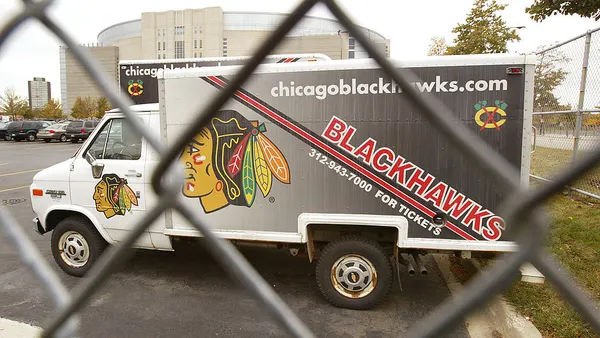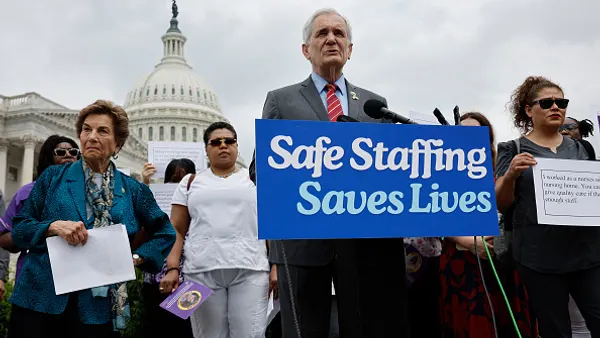Dive Brief:
- A federal court in Virginia ordered a medical staffing agency to pay more than $7.2 million in back wages and liquidated damages to 1,105 workers it intentionally misclassified as independent workers, according to a Jan. 27 statement from the U.S. Department of Labor. The agency said the judgment sent an "unequivocal message" on misclassification to healthcare industry employers.
- The court's order follows an investigation from DOL's Wage and Hour Division, which determined that the staffing agency misclassified aides and nurses as independent contractors beginning in August 2015. "By misclassifying the workers, the medical staffing agency paid them straight-time wages instead of time-and-a-half when they worked over 40 in a workweek," DOL said.
- The company was ordered to pay at least $3,619,716 in back wages and the same amount in liquidated damages. The court asked DOL's solicitor of labor to update the back wages "to the present," which will likely bring workers a substantial increase, DOL said.
Dive Insight:
DOL has been vocal recently about its stance on worker misclassification.
"When employers misclassify employees as independent contractors and fail to pay workers their hard-earned wages, the U.S. Department of Labor will hold them legally accountable," Secretary of Labor Marty Walsh said in DOL's January announcement.
In November, the agency ordered the owners of a Las Vegas telemarketing company to pay more than $1.4 million in back wages and liquidated damages after an investigation revealed similar alleged transgressions.
DOL made similar comments when it announced those charges: "Employers who misclassify workers as independent contractors deny them their hard earned wages and other benefits such as paid leave and health insurance," DOL's Wage and Hour Division, Acting Wage and Hour Administrator Jessica Looman said. "The U.S. Department of Labor will use all the tools available to ensure workers receive the wages they are due."
As DOL combats worker misclassification, a number of states have addressed the issue, too. New Jersey, for instance, enacted a series of legislation in July aimed to address misclassification by providing additional enforcement options to the state's labor and workforce development commissioner and making it illegal for employers to misclassify workers for the purpose of avoiding insurance expenses.














